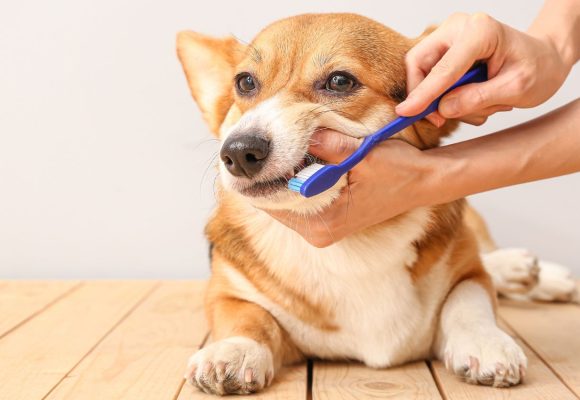Age is inevitable in the animal world, and just like humans, with age comes some specific age-related conditions that can impact the quality of life of your pet. Activities they perhaps used to enjoy, like running after a frisbee or jumping on the couch, may not be as fun as they once were.
It’s important to understand how to identify signs of aging and how you can support your animal to be as comfortable and pain-free as possible.
When is my pet considered to be senior?
Generally speaking – with dogs, at least – the smaller the animal the longer the life expectancy. Many small breed dogs can live upwards of 15 years of age, while giant breed dogs (e.g. Great Danes) have a shorter life expectancy. Knowing when your pet reaches its senior years is important as their care needs can vastly change.
- Toy/small breed dogs – 8 years
- Medium breed dogs – 7 years
- Large/giant breed dogs – 6 years
- Cats – 8 years
Common senior conditions and how your vet can help
关节炎
关节炎 is a degenerative joint disease that is caused by wear and tear on your pet’s joints over time and can cause significant pain. It is more common in dogs, particularly large breeds, but can affect any animal.
Some common signs that your pet may be suffering from arthritis include:
- Stiffness when getting up.
- Reluctance to go up and down the stairs and jump in and out of the car.
- They are moving more slowly than usual.
Luckily there are several medications you can give your pet to help, including anti-inflammatories, or injections which can be given more rarely.
If your pet is overweight, losing weight may put less stress upon their joints and lessen the symptoms. Each pet will have individual needs so it is best to seek advice from your veterinarian before starting.
Reduced Organ Function
Renal disease, hepatic (liver) disease, hyper- and hypothyroidism and heart failure are all common diseases that can affect senior pets to varying degrees. The best way to identify and manage these illnesses is through regular check-ups and blood testing.
Here at the Ark we have in-house biochemistry, haematology and urinalysis machines, meaning we can quickly and efficiently run tests, in addition to sending samples to external laboratories if necessary.
Weight Management and Diabetes
As your pet gets older, they often become less active and their metabolism slows down. As a consequence, they require less food, and often begin to put on weight, especially if they continue to eat the same amount.
If your pet is overweight, they are at an increased risk of many other diseases such as arthritis, increased risk of cancer as well as diabetes. Diabetes occurs when your pet’s pancreas can no longer make insulin; signs include increased thirst and urination.
It is important to recognise these symptoms as early as possible, as early intervention can lead to remission of the disease, and your pet may no longer need medicating.
It may be necessary to reduce food intake to compensate and for some pets, this is all they need. For others, a prescribed weight loss diet may be in order. These foods keep your pet feeling full, with many including supplements to support their joint health.
Dental Disease
Dental disease is common in all pets, but older teeth are more likely to experience build-up of plaque, which can cause swelling of the gums and make eating painful for your pet. You may notice that your pet has bad breath or becomes finicky with their food if they have dental disease.
At the Ark we provide free dental check-ups to assess your pet’s dental health and manage any problems to keep them pain-free.
Hearing and Vision Problems
Just like humans, with age, your pet’s hearing and vision become less acute. Whilst this is generally unavoidable, there are some things you can do to help your pet manage these changes.
If you notice your pet is less sensitive to loud noises, try and use visual cues to get their attention. Conversely, if they are less aware of their surroundings, they will rely on their hearing more to get around.
Making sure your pet has a designated sleeping area that stays the same provides your pet with a constant environment to feel safe.
How to Support Your Pet at Home
您可以做很多事情来帮助您家中的老年宠物尽可能舒适:
- 确保他们有柔软的床上用品来缓冲他们的关节
- Adjust your pet’s exercise routine by slowing down or shortening their walks
- If possible, make getting around the house easier by avoiding stairs and slippery surfaces
- 尝试将猫的食物碗和水碗从它们需要跳上的台面和表面上移开
- 对于较大的品种的狗,尝试抬高它们的食物和水碗,这样它们就不必弯得太远才能够到
- 确保他们有足够的淡水
- 在寒冷的月份,让您的宠物在温暖的地方过夜,或尝试在任何狗窝中添加额外的毯子/加热垫
At the Ark, we are dedicated to providing personalised veterinary care and tailor our treatments to address the issues affecting your pet, from nutrition and exercise to medication.
Many age-related diseases are easiest to treat when diagnosed early, so book a senior pet consult today with one of our experienced vets to support them through this stage of their life.






